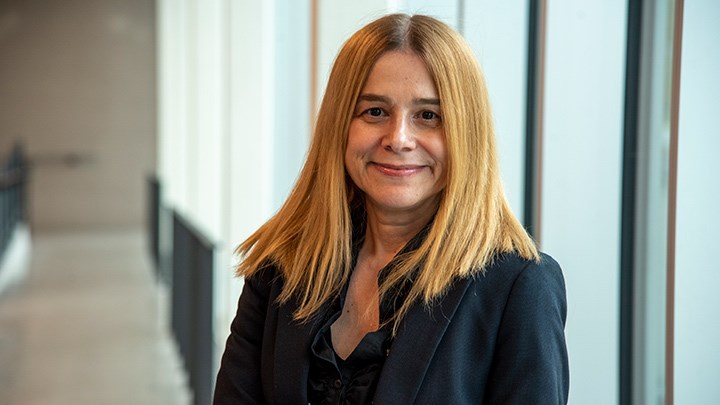Örebro researcher appointed EU advisor: “VAT is a powerful economic instrument”

Cristina Trenta, docent in legal sciences at Örebro University, will advise the European Commission as an expert on VAT matters.
Cristina Trenta, researcher at Örebro University, has been appointed as advisor to the European Commission’s VAT expert group.
Value-added tax is an area where the EU faces many difficult decisions. Such as whether taxes should be more consistent across Europe, whether artificial intelligence should be liable for VAT just as humans are, and whether certain goods and services should be favoured.
”VAT is not just a tax, but a powerful economic instrument,” says Cristina Trenta.
Over the next three years, Cristina Trenta, docent and researcher in legal sciences at Örebro University, will advise the European Commission as an expert on VAT matters.
For over a decade, the Commission has been signalling reform and simplification of VAT levels in EU member states.
“A simpler, more robust, and efficient VAT system would be a step in the right direction. Hopefully, this can help companies and individuals reduce the administrative burden and costs related to fulfilling their VAT obligations,” says Cristina Trenta.
Today, across the EU, countries apply different VAT rates. There is a common standard of 15% but no ceiling. In addition to differing VAT levels, significant differences exist in various types of goods and services between EU countries.
Member states have decided on tax rates ranging from 17% in Luxembourg to 27% in Hungary. Exemptions for certain goods or services are commonplace.
Sweden is a typical example. The standard VAT rate is 25%. However, some goods and services are entirely VAT-exempt (such as parts of health care), while some have reduced rates, 6% for books or repairs of clothes, shoes and bicycles, and others, such as some foods or art-related goods, have 12%.
Reducing tax fraud
“We should also not forget that VAT evasion and fraud negatively impact law-abiding companies through unlawful competition. A simpler and more effective VAT system would likely curb such inequities,” explains Cristina Trenta.
There are also new, challenging issues that must be addressed. For example, tasks that humans previously performed can now be performed using artificial intelligence, AI. This raises the question of whether AI should be considered a taxable person and thus treated as such in the VAT system.
Steer away from a throwaway society
VAT is also a political mechanism that can drive increased or decreased consumption of various goods and services. For example, the EU could use VAT to steer away from the old throwaway society.
“VAT is not just a tax, but a powerful economic instrument that could be used to better support human rights protection. Here, I’m thinking equality, anti-discrimination, women’s rights, and the move towards sustainability.”
This is Cristina Trenta’s third appointment as an expert to the European Commission. She is currently advising on matters related to the digital economy and involving various online platforms. Along with her previous experience in VAT issues.
“Although I’m not new at the job, you don’t really get used to it. There are lots of emotions and concerns, but also enthusiasm. Dealing with these isn’t different because you’re new or it’s your third time around. Then there’s the pressure to succeed, which only increases with a new appointment. After all, someone thinks you did well enough to call you back. So, you don’t want to disappoint.”
Text and photo: Jesper Mattsson
Translation: Jerry Gray
